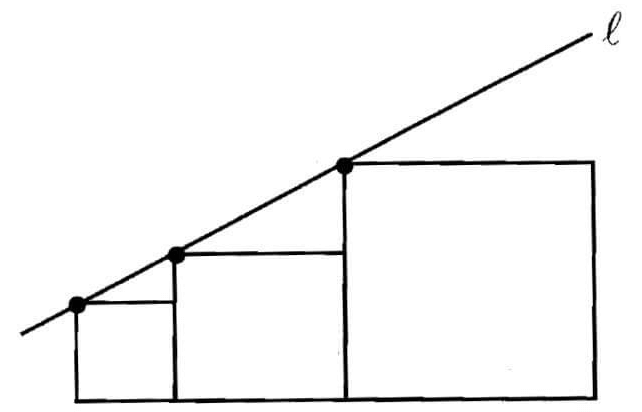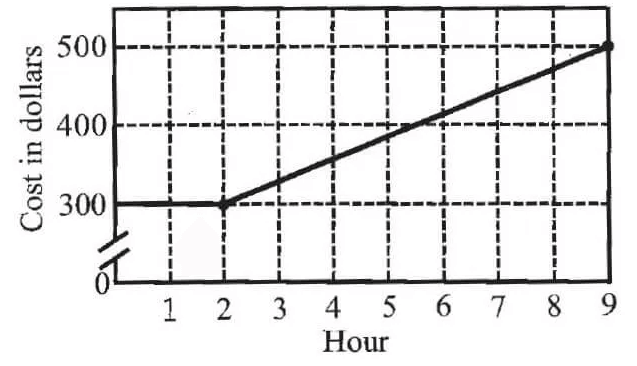PRIME FACTORIZATION BY DIVISION METHOD
Expressing a number as a product of factors that are all prime numbers is called the prime factorization of a number.
For example, 36 can be written as product of factors as shown below.
36 = 1 x 36
36 = 2 x 18
36 = 3 x 12
36 = 4 x 9
36 = 6 x 6
The factors of 36 can be found easily as 1, 2, 3, 4, 6, 9, 12, 18 and 36.
Note that not all the factors of 36 are prime numbers. One of the ways to find the prime factorization of a number is division method .
Using Division Method, we can find the prime factorization of 36 as follows :
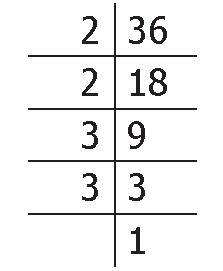 36 = 2 x 2 x 3 x 3 |
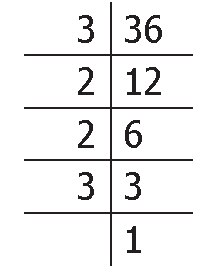 36 = 3 x 2 x 2 x 3 |
In the above method, why do we start with 2 or 3 ? why not with 5 ?
Because, we know that 36 is not a multiple of 5 and hence not divisible by 5. So, to find the prime factors of a number, it will be useful to check for divisibility by smaller numbers like 2, 3 and 5 first and not take numbers at random.
Examples :
Find the prime factors of the following numbers.
1) 56
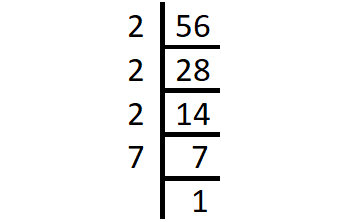
Prime factorization of 56 :
56 = 2 x 2 x 2 x 7
2) 24
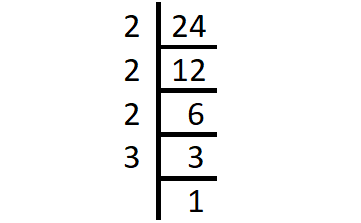
Prime factorization of 24 :
24 = 2 x 2 x 2 x 3
3) 50

Prime factorization of 50 :
50 = 2 x 5 x 5
4) 108
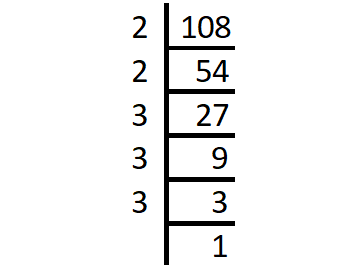
Prime factorization of 108 :
108 = 2 x 2 x 3 x 3 x 3
5) 80
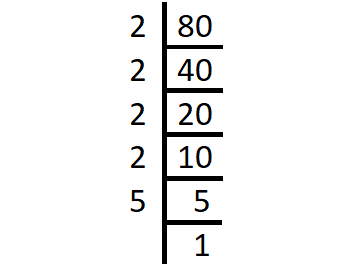
Prime factorization of 80 :
80 = 2 x 2 x 2 x 2 x 5
6) 54
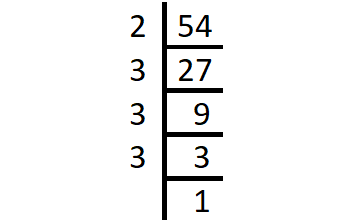
Prime factorization of 54 :
54 = 2 x 3 x 3 x 3
Kindly mail your feedback to v4formath@gmail.com
We always appreciate your feedback.
©All rights reserved. onlinemath4all.com
Recent Articles
-
Digital SAT Math Problems and Solutions (Part - 146)
Apr 18, 25 06:52 AM
Digital SAT Math Problems and Solutions (Part - 146) -
Logarithmic Derivative Problems and Solutions
Apr 16, 25 09:25 PM
Logarithmic Derivative Problems and Solutions -
Digital SAT Math Problems and Solutions (Part - 145)
Apr 16, 25 12:35 PM
Digital SAT Math Problems and Solutions (Part - 145)
